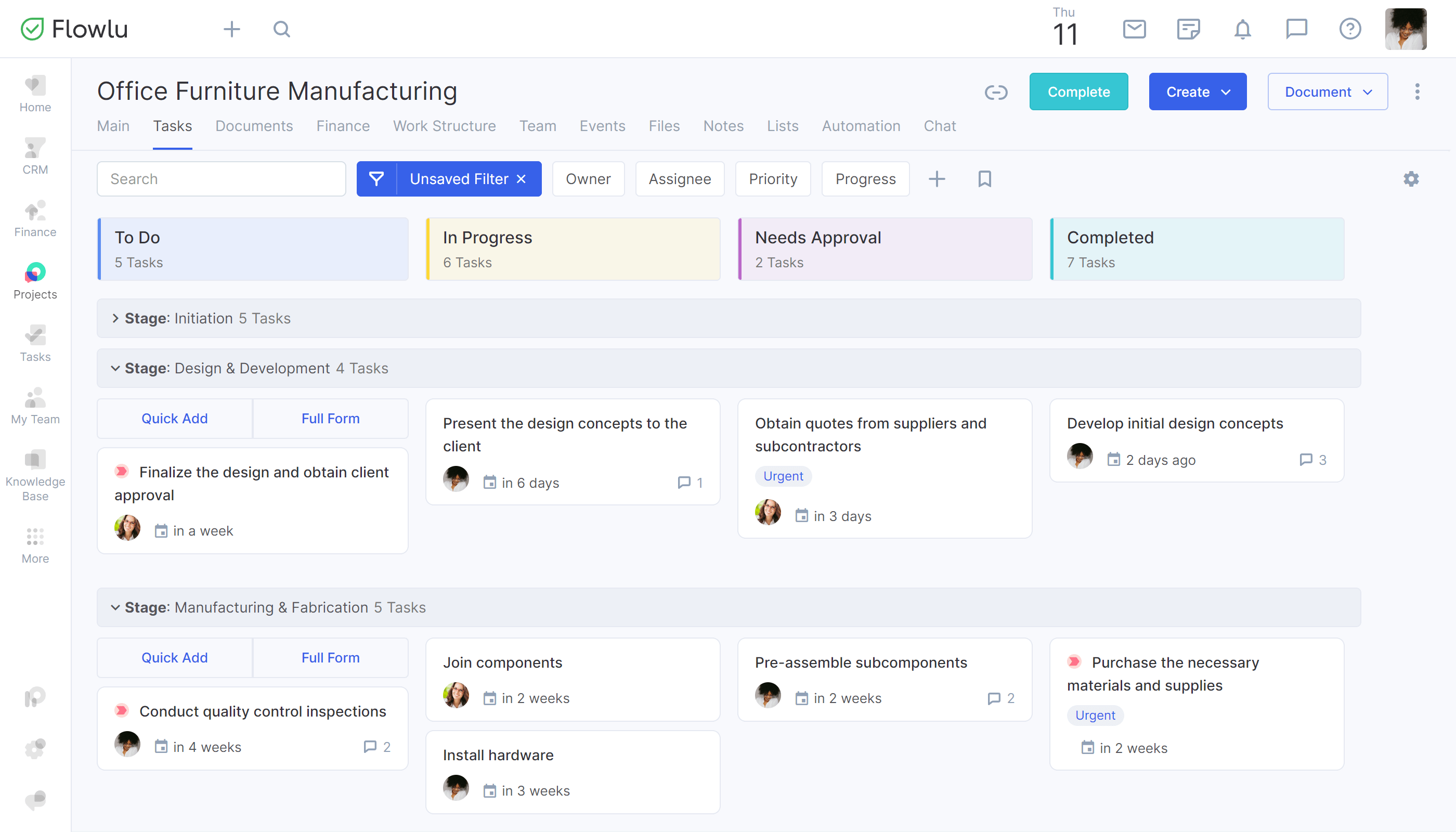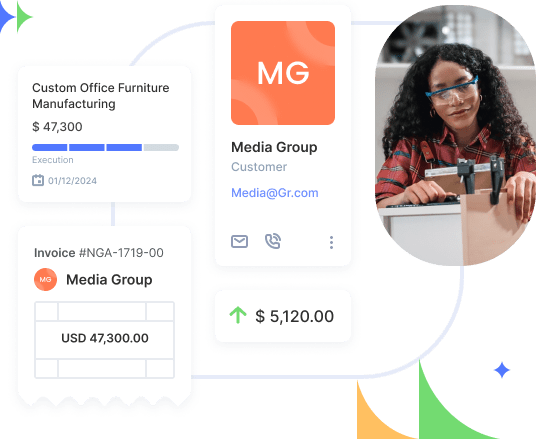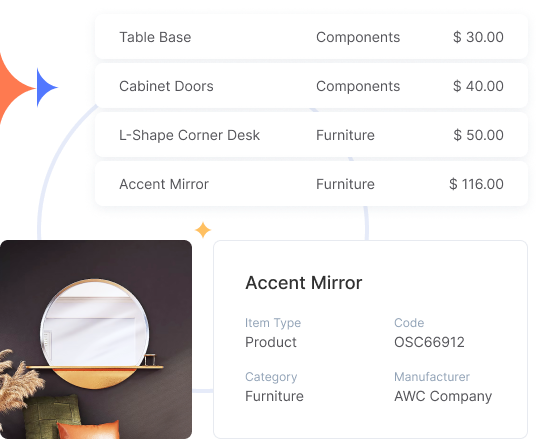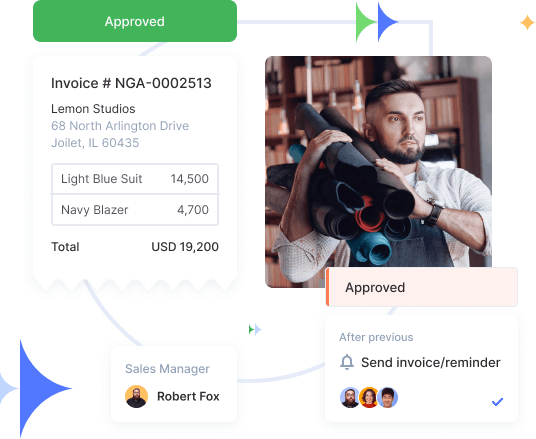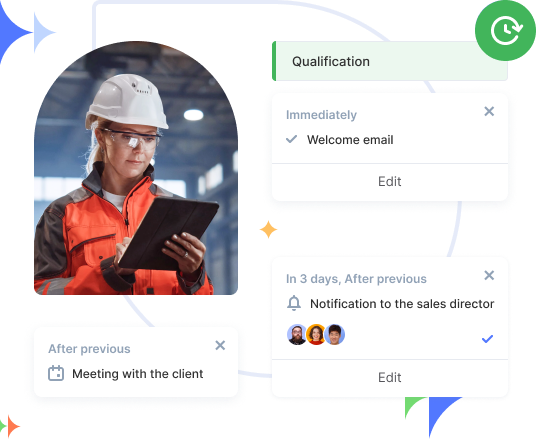CRM for Manufacturing Business
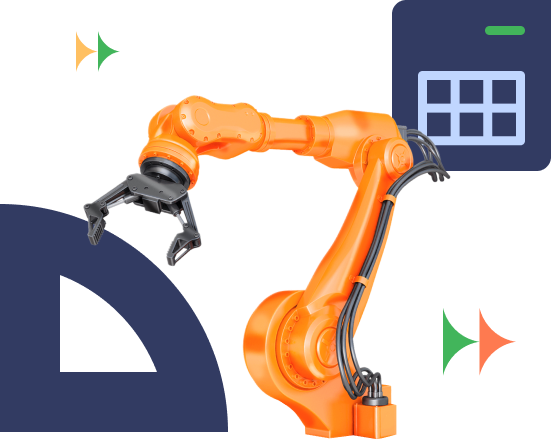
Key Features of CRM for Manufacturing
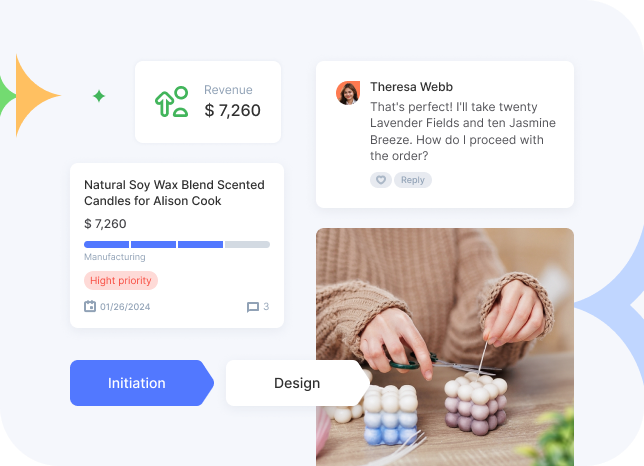
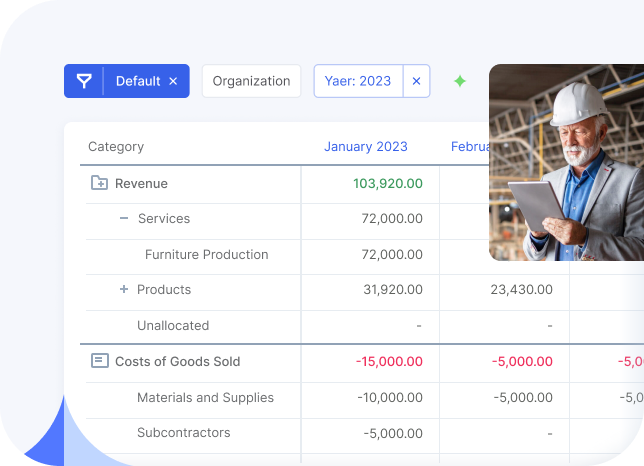
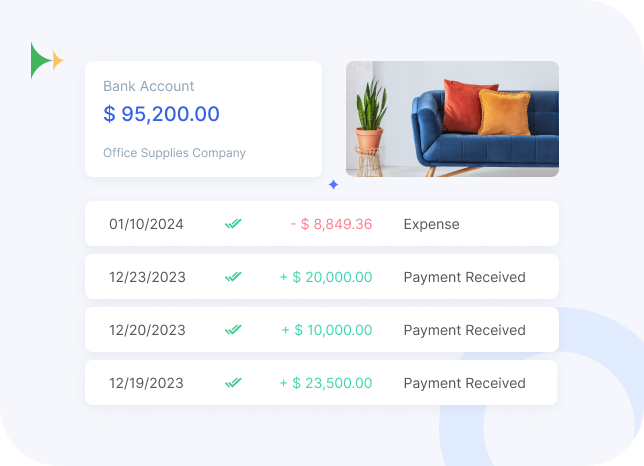
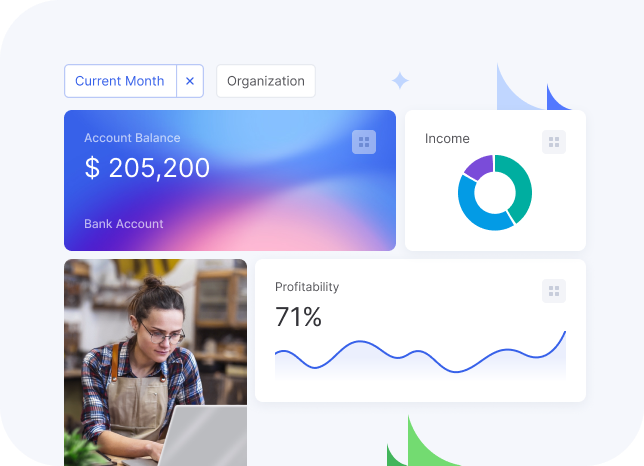

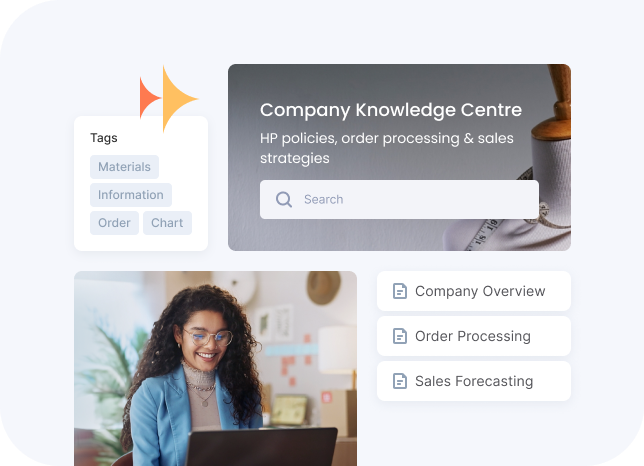
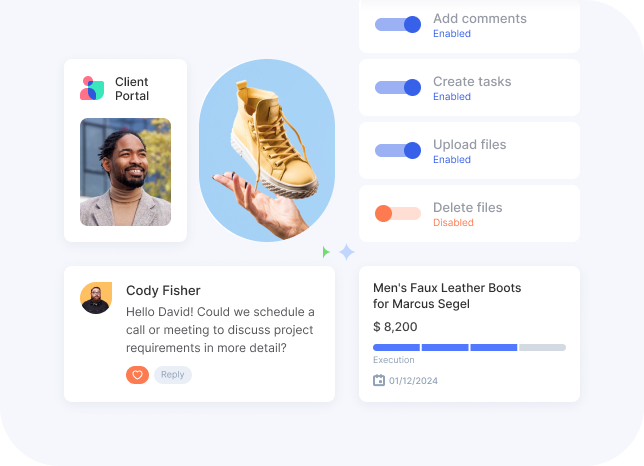
How to Choose the Best CRM Software for Manufacturing Business
-
Assessing Specific Business NeedsEvery manufacturing company is unique. Before selecting a CRM system, it's crucial to identify specific business needs and choose a solution that aligns with those requirements.
-
Scalability and FlexibilityA Customer Relationship Management system should be scalable to accommodate future growth and flexible enough to adapt to changing business dynamics. Choosing a solution that grows with the company is key.
-
User-Friendly InterfaceUser adoption is a critical factor in the success of CRM implementation. Opt for a system with an intuitive and user-friendly interface, minimizing the learning curve for employees.
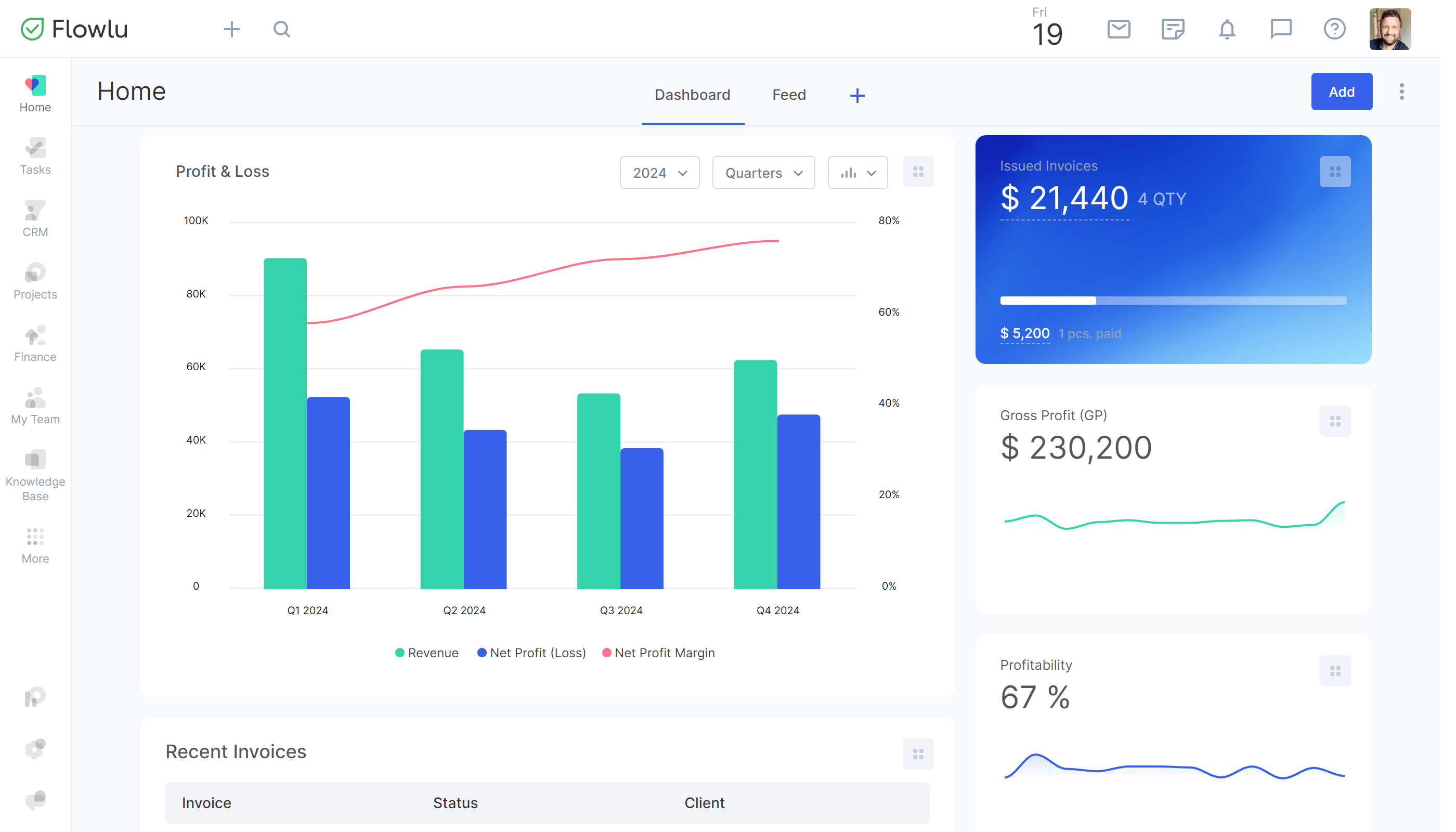


Explore Our Pricing Options
For freelancers and small teams: a simple workspace for trying Flowlu without commitment.
no hidden fees
- Key Features
-
CRM
100 contacts, 1 pipeline, lead capture forms
Tasks & Projects1 workflow, Kanban & list views, milestones
FinanceInvoices & estimates, product catalog, branding, payment & expense tracking
CollaborationPrivate chat, personal calendar, comments & mentions, basic wiki, mind maps, company feed
Time TrackingCustomizationHRIntegrations & APIAutomationSupportHelp center + AI bot
- Show all features
For growing teams: move beyond basic task tracking to manage client work confidently.
billed yearly per user / month
billed monthly
- Everything in Free +
-
CRM
Multiple sales pipelines, email sync, email templates, CRM reports
Tasks & ProjectsGantt chart, backlog & sprints, subtasks, task dependencies, project workflows, basic financial tracking
FinanceOnline payments, invoice templates, late reminders, finance reports (P&L, cash flow)
CollaborationTask followers and collaborators, group chat, shared calendars, growing team knowledge base
Time TrackingTimer for tasks
CustomizationCustom fields & lists, task statuses, templates, basic record customization
HRBasic team organization (groups)
Integrations & APICore integrations
AutomationSupportLive chat
- Show all features
For mid-sized companies: handle complex projects and finances with more control.
billed yearly per user / month
billed monthly
- Everything in Essential +
-
CRM
Sales automations, email tracking, client portal, duplicate merge, advanced CRM reports
Tasks & ProjectsMultiple tasks workflows, recurring tasks, portfolio management, project cash flow forecast
FinanceRecurring invoices, multi-org & multi-currency support, inventory tracking
CollaborationRole-based access, external wiki for clients, advanced knowledge base
Time TrackingBillable hours, planned vs. logged time, custom billing rates
CustomizationFormula fields, branding, advanced record customization
HROrg chart, time off management, schedules
Integrations & APIFull integration hub with higher API capacity
AutomationWorkflow & pipeline automations, 3 business processes
SupportPriority support
- Show all features
For scaling organizations: unify projects, people, and finances in a customizable system.
billed yearly per user / month
billed monthly
- Everything in Advanced +
-
CRM
5 inboxes per employee, extended email history, advanced tracking
Tasks & Projects20 task & project workflows, 50 agile projects, enterprise project & portfolio analytics
FinanceBudget planning, advanced dashboards, enterprise finance tools, multiple organizations
CollaborationEnterprise knowledge base, 100 external collaborators, full collaboration suite
Time TrackingFull time tracking suite across projects & teams
CustomizationFull white-labeling, custom domain & email, enterprise security options
HREnterprise HR suite for large teams
Integrations & APIEnterprise integrations with maximum API capacity
AutomationFull automation suite, 10 business processes
SupportDedicated success manager + onboarding
- Show all features












Challenges in Implementing Manufacturing CRM
Tips for Successful CRM Implementation
The primary benefits include improved customer relationships, streamlined processes, and enhanced sales and marketing efforts.
No, CRM is beneficial for companies of all sizes. It can be tailored to meet the specific needs of each business. For example, the best CRM for small manufacturing businesses is an affordable CRM software solution with a user-friendly interface and powerful customization features, suitable for small manufacturers, considering budget constraints.
Robust security measures, regular updates, and employee training are essential to ensure the security of customer data.
- One common misconception is an overemphasis on the cost of CRM implementation. While there is an initial investment, the long-term benefits often outweigh the costs.
- Some may perceive CRM as overly complex. Demystifying the implementation process and showcasing its user-friendly aspects can dispel this misconception.
- Understanding the full spectrum of CRM capabilities is essential. It's not just a sales tool; it's a comprehensive solution that addresses various aspects of manufacturing operations.
The future of CRM in manufacturing is marked by continuous technological advancements. Embracing emerging technologies ensures that manufacturing companies stay competitive and agile.
The integration of CRM with supply chain management enhances visibility and collaboration across the entire supply chain. Real-time data exchange enables proactive decision-making and efficient coordination. The Customer Relationship Management system bridges the gap between different departments involved in the supply chain. Improved communication and collaboration lead to a more agile and responsive supply chain.
If you’re looking for the best CRM software for the manufacturing industry, gather insights from professionals who have firsthand experience with CRM in manufacturing, exploring success stories and user reviews at Capterra or G2. Some of the best CRMs for manufacturers include Salesforce, Hubspot and Flowlu. For example, Flowlu posses a number of benefits for manufacturing companies:
- Custom Fields: Should the predefined fields prove insufficient, customize your own to meticulously document the essential data.
- Detailed Project Page: Keep project information at your fingertips for seamless management.
- Custom Lists: Showcase customized lists precisely where you require them. Effortlessly capture and locate the necessary information within seconds!
- Automation: Eliminate manual intervention in repetitive tasks, allowing for faster and more accurate completion of processes
- Document Builder: Accelerate document workflow, leading to faster, successful completions. Streamline the generation of invoices, estimates, and quotations, automatically sending them to customers and facilitating online payments within the manufacturing CRM.
- Dashboards: Track the status of customer invoices and easily identify top-performing sales managers. Compare production costs to revenue generated.
- Integrations: Flowlu is a well-integrated Customer Relationship Management system that connects seamlessly with other business applications, such as email, telephony and online payment gateways creating a unified ecosystem that enhances operational visibility.
With manufacturing professionals constantly on the move, having access to critical customer data at their fingertips becomes crucial. Mobile Customer Relationship Management system ensures that sales teams, managers, and executives can access real-time information anytime, anywhere, leading to faster decision-making. Flowlu’s mobile app facilitates seamless communication by providing a centralized platform for team members to collaborate, share updates, and discuss work-related matters effortlessly.
- The future of CRM in manufacturing is intertwined with artificial intelligence (AI) and machine learning. These technologies bring predictive analytics, enabling manufacturers to forecast demand, optimize production, and enhance decision-making.
- The Internet of Things (IoT) is reshaping manufacturing, and its integration with CRM is on the horizon. The synergy between IoT and Customer Relationship Management systems promises real-time monitoring, predictive maintenance, and a deeper understanding of customer behavior.
- The integration of predictive analytics into CRM systems empowers manufacturing companies to make data-driven decisions. Anticipating market trends, identifying potential issues, and optimizing processes become more achievable with predictive analytics.







